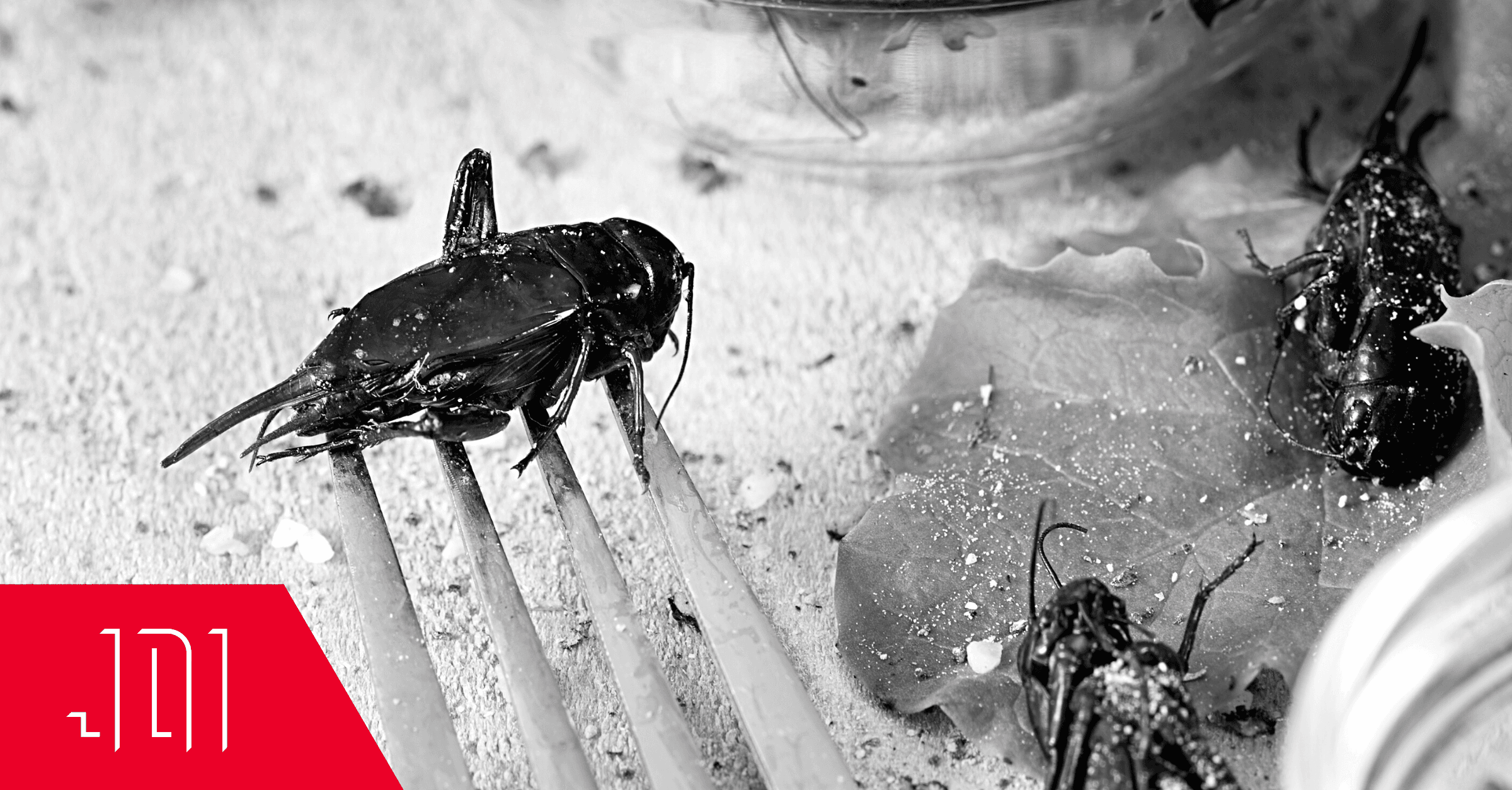A Sustainable Feast for the Future
The quest for sustainable, nutritious food in an ever-expanding global population has become one of the most pressing issues of our time. Traditional food sources are coming under increasing scrutiny for their environmental impact, from water usage in crop irrigation to the carbon footprint of livestock farming. In this complex web of challenges, where each decision we make has far-reaching consequences, finding a solution that checks all the boxes can feel like an insurmountable task.
Enter the world of edible insects. Often overlooked, these miniature creatures offer a solution to the multi-dimensional challenges we face. Not only are they nutritional goldmines, but their environmental footprint is also remarkably low, making them a compelling alternative to more traditional forms of protein.
A Nutritional Powerhouse
Many would be surprised to learn that commonly consumed insects like grasshoppers, crickets, and mealworms are nutritional goldmines. Research reveals that these tiny creatures contain essential minerals that are vital for functions ranging from bone health to energy production, like calcium, copper, magnesium, manganese, and zinc, in amounts that surpass even conventional meat sources like sirloin beef. Moreover, insects might even give our bodies a more efficient iron boost than beef.
But it doesn't stop there. Depending on the species and developmental stage, insects can pack a protein punch, with some boasting protein contents as high as 76%. Some edible insects also offer beneficial polyunsaturated fatty acids, crucial for maintaining heart health and supporting brain function, making up to 70% of their total fatty content.
In addition to proteins and fats, these critters are brimming with vital vitamins. Some, like the Sphenarium (grasshoppers or chapulines in Mexico), are particularly enriched in thiamine and riboflavin, while the Periplaneta Americana stands out as a source of vitamin A. Other vitamins, including those from the B-group and D, E, K, and C, which are essential for functions like energy production, bone health, and immune support, can also be found in various insect species. However, their content may vary based on factors like seasonality and diet. In a traditional Western diet, meats primarily provide B vitamins, but a balanced diet including fruits and vegetables is needed for comprehensive nutrition. Common deficiencies include B12 among vegetarians and Vitamin D in regions with less sunlight.
However, it's essential to be informed when adding insects to our diet. Some might contain toxic compounds or residues from pesticides and heavy metals. Like other foods, they could also trigger allergic reactions in some people.
Eco-Friendly Food Producers
The urgency to find sustainable food sources in our increasingly environmentally-conscious world has never been greater. Edible insects, in this context, emerge as a beacon of hope.
When it comes to resource efficiency, insect farming takes the cake. With advancements like computerized insect-rearing systems, feeding can be precisely optimized, reducing waste and enhancing overall efficiency. Notably, many insect species require significantly less water than traditional livestock. Some insects source water directly from their feed through fresh vegetables and fruits, while others need only a small, carefully managed amount provided separately, avoiding issues like drowning or habitat flooding, making insect farming a more sustainable option in terms of water usage.
There are many environmental benefits to insect farming. They have a faster growth rate and superior feed-to-food conversion efficiency, requiring less feed to produce the same amount of protein as farm animals, and emitting significantly fewer greenhouse gasses than traditional livestock. Furthermore, the ability of insects to thrive on organic waste materials offers a sustainable way to convert waste into protein. This cyclical, closed-loop system minimizes waste and bolsters the sustainability of the entire food production chain.
One of the most compelling arguments for insect farming is its potential to support biodiversity. Unlike traditional livestock farming, which often results in large-scale deforestation, insect farming can be conducted with minimal land alterations, preserving our ecosystems.
A Cultural and Economic Revival
Throughout human history, the consumption of insects has been influenced by many factors, from environmental availability to cultural traditions. Today, the narrative surrounding insects is shifting from one of reluctance to one of rediscovery.
In many parts of the world, insect consumption has deep historical roots. Studies show that consumer acceptance is heavily influenced by familiarity and exposure. Modern cookbooks, like "Secrets of African Edible Insect Cookery" and "Les Délices de Mikese," are playing a pivotal role in this cultural renaissance. These books set the stage for a global culinary revolution by merging traditional knowledge with innovative recipes.
Yet, mainstreaming insects in global diets requires reshaping perceptions and breaking taboos. In some places, modern lifestyles and urbanization have relegated insect consumption to the annals of history. To counter this, educational campaigns, media, and culinary influencers are actively working to rewrite the narrative around insect consumption.
From an economic perspective, the prospects are equally promising. Since the land and feed requirements are lower than traditional farming, insect farming presents a low-cost entry point, making it an attractive venture for small-scale farmers and entrepreneurs. The diversification of insect-based products offers multiple revenue streams, potentially capturing a significant market share. Furthermore, insect farming can boost employment and enhance food tourism, offering various economic benefits.
The landscape of insect farming is undergoing a transformative phase, both in terms of economic viability and sustainability. Companies like Ÿnsect are leading the way in large-scale insect farming, focusing on mealworm beetles raised in controlled environments. In terms of regulation, the U.S. follows an "enforcement discretion" policy, treating insects like any other food under the Generally Recognition of Safety (GRAS) guidelines. Despite the less stringent oversight, the industry is working diligently to meet high scientific standards. On the socio-economic front, insect farming is gaining traction as a poverty alleviation strategy, particularly in African countries where it also serves as a more sustainable alternative to traditional livestock farming. However, winning hearts and minds remains a challenge, especially in meat-loving regions like France, where insect farming is often viewed with skepticism despite its evident environmental and nutritional benefits.
In the ongoing narrative of food sustainability and nutrition, insects might just be the missing chapter that brings the story full circle. Edible insects hold the potential to transform our food systems by turning our preconceptions on their heads. They challenge our conventional wisdom about what is edible, what is sustainable, and what is nutritious. As we continue to search for ways to feed the global population without stripping the Earth of its precious resources, insects offer a promising path forward. The key to unlocking this potential lies in our willingness to explore, innovate, and adapt. With the right blend of innovation, education, and policy support, insects could transform from a food of the past into the sustainable superfood of the future.





